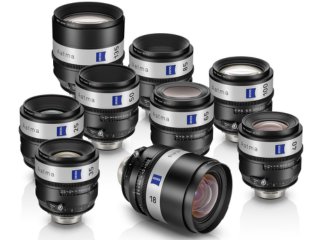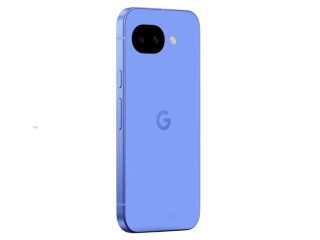- Home
- Science
- Science News
- India, US Researchers Collaborate to Develop Optogenetic Tool to Understand Brain Disorders
India, US Researchers Collaborate to Develop Optogenetic Tool to Understand Brain Disorders
Indian Researchers at Jamia Millia Islamia collaborated with US National Institutes of Health developed tool to understand brain disorders.

The tool can help understand Alzheimer’s disease, depression and schizophrenia
Researchers at the Jamia Millia Islamia (JMI) here in collaboration with the US National Institutes of Health (NIH) have developed an optogenetic tool which can help understand brain disorders like Alzheimer's disease, depression and schizophrenia.
In a statement, the JMI said that the tool can study molecular trafficking in neurons and has been developed by Dr Tanveer Ahmad, who did his postdoctoral training at NIH, before joining the Multidisciplinary Centre for Advanced Research and Studies (MCARS) at the varsity as an assistant professor.
"Understanding the molecular details of these diseases will help to develop targeted therapies, in particular viral and mRNA-based methods, which are specific to a particular target molecule in the cells," Ahmad said.
The tool can be applied to address other biological questions like memory formation, and for the development of inducible light-activated therapies for the treatment of cancer and neurodegeneration, he said.
Leveraging the potential of phototropic receptors known as light-oxygen-voltage-sensing domains derived from the plant Avena Sativa (oats) and abbreviated as AsLOV2, the researchers generated innovative chimeric molecular designs by conjugating a light-sensitive domain of LOV2 with a protein called neuregulin3 (NRG3).
Further, Alzheimer's, schizophrenia, and depression have genetic polymorphisms in NRG3 due to which it is considered as a susceptible gene for these diseases, according to the statement.
Using this innovative tool, the researchers discovered a new mechanism of protein trafficking in hippocampal neurons of the brain which they termed as “trans-synaptic retention”, it said.
Professor Mohd. Zulfequar, Director of MCARS, said these novel futuristic optogenetic techniques will provide unprecedented ease to understand human diseases and finding innovative treatment solutions.
The optogenetic technique has revolutionised the field of neuroscience and collaboration with institutes of the world like the NIH, shows that India is at the forefront to develop and implement these cutting-edge technologies, he said.
A study in this regard was published in a highly-reputed peer-reviewed scientific journal — "Journal of Cell Biology" by The Rockefeller University, US, the JMI said in a statement.
Ahmad is the lead author of the study while Rituparna Chaudhuri and Nisha Chaudhary are the other contributing authors, it said.
The team from NIH includes Dr. Andres Buonanno, who is the senior author, and Dr. Detlef Vullhorst, Dr. Carlos Guardia, Dr. Irina Karavanova, and Dr. Juan Bonifacino who are co-authors.
Get your daily dose of tech news, reviews, and insights, in under 80 characters on Gadgets 360 Turbo. Connect with fellow tech lovers on our Forum. Follow us on X, Facebook, WhatsApp, Threads and Google News for instant updates. Catch all the action on our YouTube channel.
Related Stories
- Samsung Galaxy Unpacked 2025
- ChatGPT
- Redmi Note 14 Pro+
- iPhone 16
- Apple Vision Pro
- Oneplus 12
- OnePlus Nord CE 3 Lite 5G
- iPhone 13
- Xiaomi 14 Pro
- Oppo Find N3
- Tecno Spark Go (2023)
- Realme V30
- Best Phones Under 25000
- Samsung Galaxy S24 Series
- Cryptocurrency
- iQoo 12
- Samsung Galaxy S24 Ultra
- Giottus
- Samsung Galaxy Z Flip 5
- Apple 'Scary Fast'
- Housefull 5
- GoPro Hero 12 Black Review
- Invincible Season 2
- JioGlass
- HD Ready TV
- Laptop Under 50000
- Smartwatch Under 10000
- Latest Mobile Phones
- Compare Phones
- OPPO K14x 5G
- Samsung Galaxy F70e 5G
- iQOO 15 Ultra
- OPPO A6v 5G
- OPPO A6i+ 5G
- Realme 16 5G
- Redmi Turbo 5
- Redmi Turbo 5 Max
- Asus Vivobook 16 (M1605NAQ)
- Asus Vivobook 15 (2026)
- Brave Ark 2-in-1
- Black Shark Gaming Tablet
- boAt Chrome Iris
- HMD Watch P1
- Haier H5E Series
- Acerpure Nitro Z Series 100-inch QLED TV
- Asus ROG Ally
- Nintendo Switch Lite
- Haier 1.6 Ton 5 Star Inverter Split AC (HSU19G-MZAID5BN-INV)
- Haier 1.6 Ton 5 Star Inverter Split AC (HSU19G-MZAIM5BN-INV)
-
 Zeiss Launches Aatma Lenses in India With Retro Design, Up to 135mm Focal Length: Availability, Features
Zeiss Launches Aatma Lenses in India With Retro Design, Up to 135mm Focal Length: Availability, Features
-
 MeitY Notifies Fresh IT Rules to Regulate AI-Generated Content, Deepfakes on Social Media Platforms
MeitY Notifies Fresh IT Rules to Regulate AI-Generated Content, Deepfakes on Social Media Platforms
-
 Google Pixel 10a Store Page Suggests FaceTime Compatibility for iPhone Switchers: Here's What It Means
Google Pixel 10a Store Page Suggests FaceTime Compatibility for iPhone Switchers: Here's What It Means
-
 Marvel's Spider-Man 2 Is Reportedly Coming to PS Plus Game Catalogue in February
Marvel's Spider-Man 2 Is Reportedly Coming to PS Plus Game Catalogue in February





![[Partner Content] OPPO Reno15 Series: AI Portrait Camera, Popout and First Compact Reno](https://www.gadgets360.com/static/mobile/images/spacer.png)





